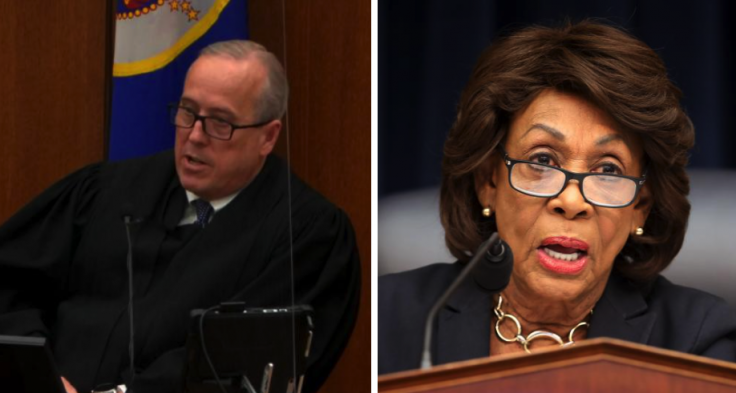The judge overseeing former Minneapolis Police Officer Derek Chauvin's trial in the death of George Floyd slammed Rep. Maxine Waters' recent comments as "abhorrent" and said that her remarks might allow the defense to get the verdict overturned.
Floyd died on May 25, 2020, after he was arrested by police on suspicion of passing a counterfeit $20 bill. Video footage showed Chauvin, a white Minneapolis police officer kneeling over the 46-year-old African-American man's neck for more than nine minutes. His death sparked protests around the world over police brutality.

Judge Peter Cahill denied a motion by Chauvin's defense attorney for a mistrial on the grounds of Waters' remarks but said that the congresswoman may have given the defense grounds for appeal in the event of a conviction.
"I'll give you that Congresswoman Waters may have given you something on appeal that may result in this whole trial being overturned," the judge said on Monday.
What Did Waters Say About the Chauvin Trial?
On Saturday, April 17, 2021, Congresswoman Waters visited a racial justice protest in Brooklyn Center, a suburb of Minneapolis. While answering questions from reporters, the California Democrat said that if Chauvin was not found guilty of murder, protesters would have to take to the streets and fight for their rights. Waters' comments came just two days before jury deliberations began in the trial.
Right-wing activist and One America News correspondent Jack Posobiec shared a video on Twitter showing Waters speaking to cameras.
In the clip, Waters answered a series of questions. She said that she hoped Chauvin was found guilty of first-degree murder. She also said that protesters would need to "stay in the streets" and "get more confrontational" in their "fight for justice," should Chauvin walk free.
Maxine's remarks were dubbed as "controversial" by CNN while Fox News reported that the lawmaker "appeared to incite protesters in Brooklyn Center, Minnesota."
In an interview with TheGrio, Waters later clarified that her remarks were not an incitement to violence. "I am nonviolent," she said. "I talk about confronting the justice system, confronting the policing that's going on, I'm talking about speaking up. I'm talking about legislation. I'm talking about elected officials doing what needs to be done to control their budgets and to pass legislation."








